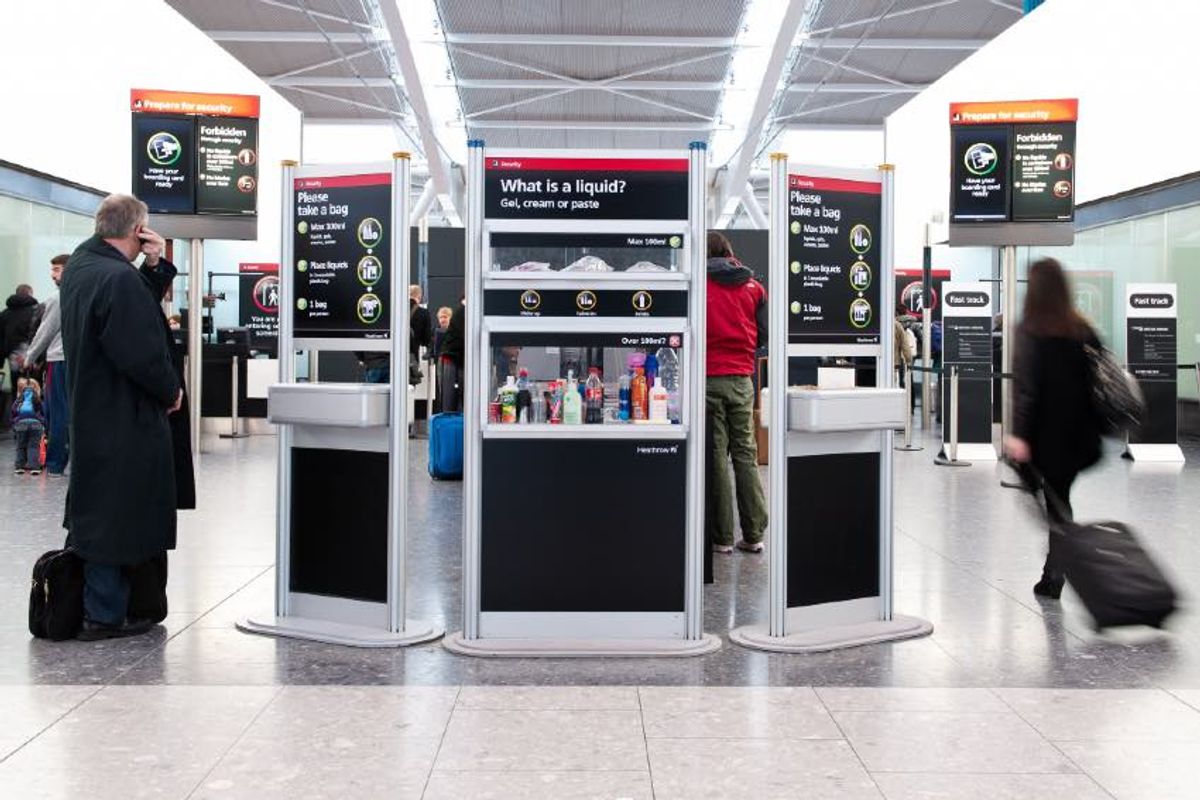EU airports told to restore 100ml hand luggage rule

European airports have been informed that they will have to reinforce the 100ml rule on liquid containers being taken onboard aircraft from 1 September.
Some airports have been able to lift this longstanding rule on liquids in hand luggage, thanks to the installation of new scanners, known as Explosive Detection Systems for Cabin Baggage (EDSCB) scanners.
But the European Commission has said that the 100ml rule will be “temporarily” reimposed at EU airports using this type of equipment from the start of next month. The UK government made a similar decision in June, which has forced six airports to restore the 100ml limit on liquids this summer.
“This precautionary measure is not in response to any new threat but addresses a temporary technical issue, undertaken in alignment with the EU’s international partners,” said the European Commission in a statement.
“The commission is collaborating closely with member states and the European Civil Aviation Conference to develop swift technical solutions, ensuring the highest standards of safety and security in air travel.”
Airports association ACI Europe said the “severe restrictions to the use of next generation cabin baggage scanners” would also apply to airports in Iceland, Switzerland, Liechtenstein and Norway.
Olivier Jankovec, ACI Europe’s director general, added: “Security is non-negotiable, it is at the very top of priorities for Europe’s airports. As such, all airports will comply in full with the new restriction.
“However, the fact remains that those airports which have been early adopters of this new technology are being heavily penalised both operationally and financially.
“The decision to now impose significant restrictions to their use questions the trust and confidence the industry can place in the current EU certification system for aviation security equipment.”
ACI Europe also called for the European Commission and EU members to “urgently develop a roadmap with set milestones to waive the current restrictions”.
Related
Brits forced to pay fee to visit these 30 countries…
UK tourists will be required to pay a fee to visit 30 countries in Europe under new European Union (EU) travel rules.The rules mean British holidaymakers will n
The beautiful European island with just 148 locals
Irakleia is a beautiful island in the Minor Cyclades of Greece, nestled in the heart of the Aegean Sea and just an hour away from Naxos. Officially recorded t
Warning issued for Brits flying easyJet and Ryanair to popular…
Passengers flying with Ryanair, easyJet and British Airways should expect disruption (Picture: Urbanandsport/NurPhoto via Getty Images) Passenge










